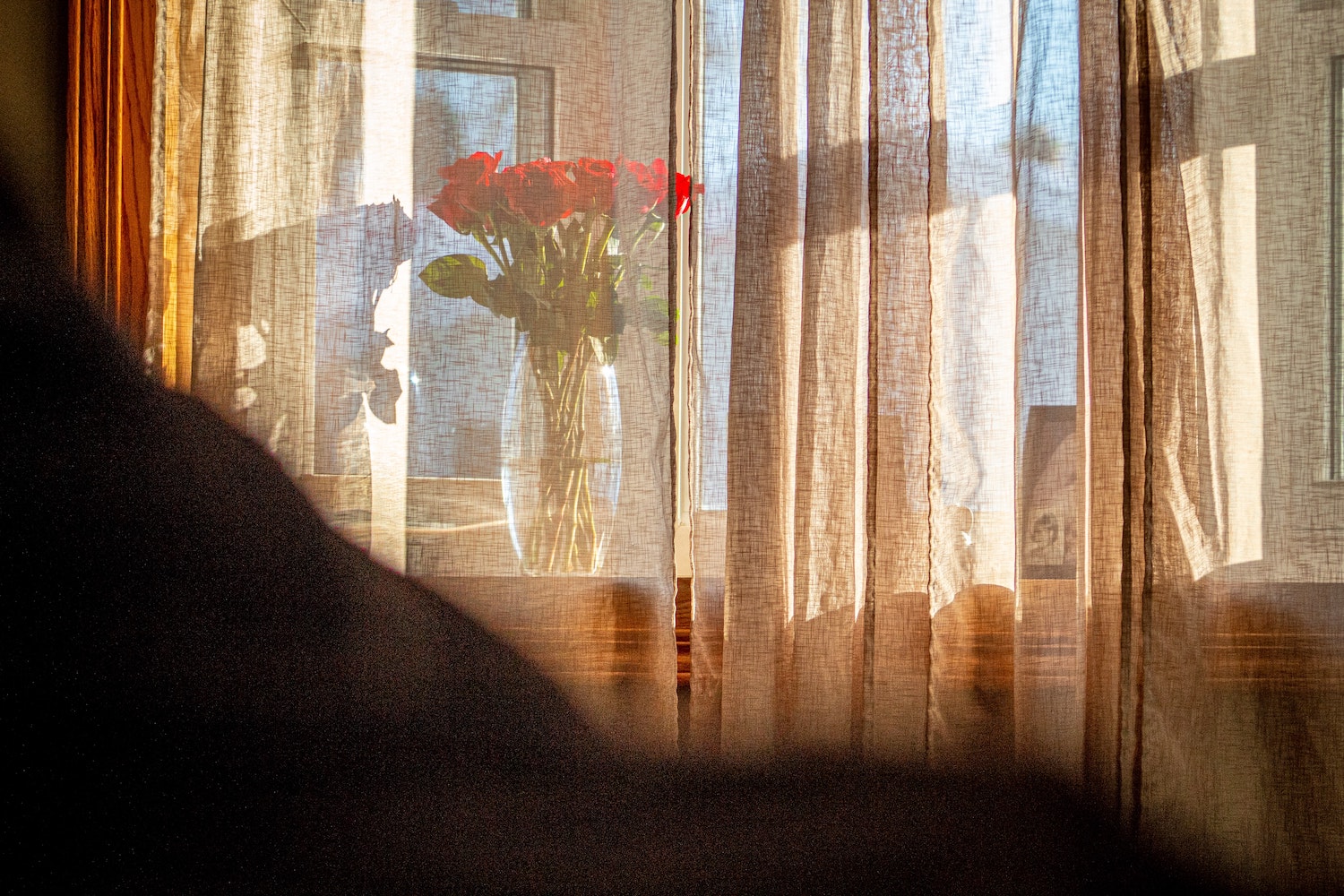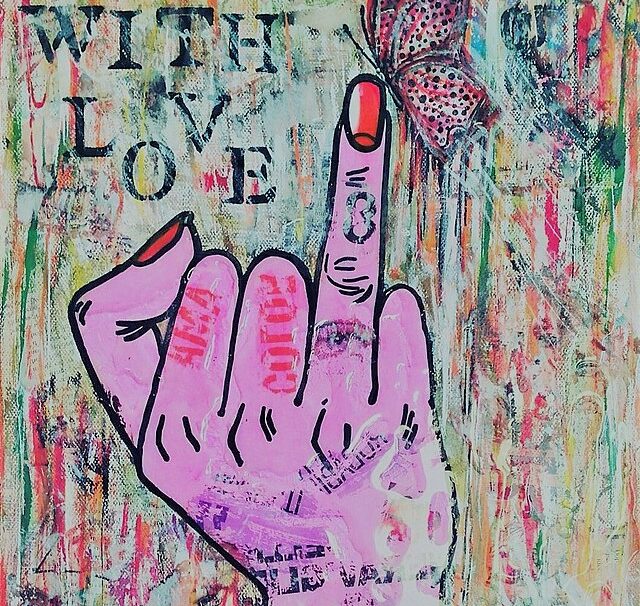interviews
Lily King Weaves Glimmers of Hope into Her Short Story Collection
The author of "Five Tuesdays in Winter" on craft, balancing writing and motherhood, and dealing with unsolicited male advice

Spanning dreamy teenagers to furious parents, violence to kindness, each of the ten short stories in Five Tuesdays in Winter is rendered with Lily King’s signature longing and wit. We are all learning to carry our grief, this collection argues, yet still hoping to scrape together a few more moments of passion and connection. From the first story, King’s cleverness, emotional depth, and range pulled me in and glued me to the couch.
Take one favorite of the collection, “When in the Dordogne.” In it, a couple of college guys come to stay with a lonely young boy in his home while his parents are away for the summer. “The two boys stood responsibly beside me as we waved my parents off…. And then, after a respectful pause, they let loose.” Loose is exactly how King’s work reads as she ponders why we build boxes around ourselves and what it takes to climb out. As the boy in the story says, “I had only seen people behave one way in this house, prudently laconically, in codes I could not understand but had learned to imitate. And now here was another way.”
Indeed, King’s specialty is creating emotional change on the page. The final story holds a unique thrill for anyone who has spent time in a writing workshop. In “The Man at the Door,” an Olympic level mansplainer arrives to goad a new mother about her desire to write novels. “Women are at their best when they’re writing about men: their husbands, their fathers, their lost loves. It’s when they start writing about themselves that they become unreadable,” he says, growing ever more outrageous with each line, infuriating the protagonist until she explodes into mad creativity.
I spoke to Lily King via phone about whether her short story collection is a rebellion against the times we live in, unsolicited male advice, and the spirit of hope in her work.
Amy Reardon: There’s so much warmth in Five Tuesdays in Winter. Is this book a rebellion against the times we’re living in?
Lily King: I wrote the stories over many years, so these times were not in my mind for a lot of them. But a number of people have said, “You’re not afraid of a happy ending,” and I’ve been thinking a lot about that, and why that is true. It’s funny, everybody kind of sees what they want to see. I think even in stories that don’t have cleanly, purely happy endings, I am in the business of hope. I do believe in hope, and I do believe in change, and I do believe that we’re better than we think we are, and we’re better than this time we’re in. We are. I just… I hope we can get there before the world ends.
There is probably a part of me that does want to fight against these times because they can seem so dark, and I refuse to go there. Nobody needs to be reminded of it. We’re living in it every day. We see the incredible dysfunction at every level, the miscommunication, the misinformation, and the lack of connection. I just don’t feel like I need to remind anybody of that right now. I don’t want to. That’s not where I want to live. I see it, we all see it, let’s feel other things.
AR: There’s a certain releasing your characters experience, from difficult situations, and into love or acceptance, is that intentional?
LK: Certainly, as a short story writer, you present a knot that the character is twisted into, and somehow you want to pick at that knot and loosen up—at least a little bit—that person emotionally. I think that’s always my interest. A lot of times, I use a claustrophobic situation to get there. I put them in some compressed place where they can’t really move around a lot, and they have to deal with it without a full escape. I guess I think about “North Sea,” and they’re stuck on that island together. In “When in the Dordogne,” they’re in that house. I was interested in that kind of pressure cooker situation, and I’m really, really interested in emotional changes and an emotional arc. That’s what I’m writing about. It doesn’t really matter to me what happens and what the plot is. The plot is all in service to an emotional arc that I’m trying to create.
AR: When I finished the final story, “The Man at the Door,” I felt elated by how the story captured all those familiar “dude in workshop” comments and used them to empower the protagonist’s creative breakthrough. What’s the origin of that story?
LK: I wrote that story in probably the darkest hour of writing and mothering and trying to figure out how I could do either of them well. I had a two-year-old and a newborn, and I was trying to nurse my younger child and write in the two naps that she would take in the morning and the afternoon. Maybe someone came to the door, or I had a dread of someone coming to the door or something. I remember so well how I used to prop her up with all of these pillows and get her to latch on and then hopefully, hopefully, hopefully fall asleep for just a little bit so I could write. I was writing a second novel. It wasn’t going well, and I took a break to write this story.
It’s a very fictional story, not my situation. I’d already published a novel. I didn’t have any novels in the basement, I didn’t have a husband like that, and I didn’t have kids in school, but I certainly did have a lot of men in my life over the years dispensing all kinds of male advice. I had an alcoholic father, so he shows up in all kinds of forms. I didn’t expect him to show up there. I honestly feel like that story came out of some sort of hallucination from lack of sleep for two and a half years straight. Because I don’t write a lot of surreal stories. Paranormal stuff, that’s not my thing. I can only attribute the lack of sleep to that happening.
AR: Is that story the completion of the book’s arc then? Because the collection begins with “Creature,” about a teenage girl reading Jane Eyre, fantasizing about her own agency when she gets assaulted in the bathroom. Then at the end, “The Man at the Door” give us a woman reaching full agency. Not so different from Jane Eyre’s path from powerless girl to grown woman with agency. Is that how you see the emotional arc of the collection?
As a short story writer, you present a knot that the character is twisted into, and somehow you want to pick at that knot and loosen up that person emotionally.
LK: Well maybe not as sophisticatedly as that, no. When we were putting it together, we were trying to figure out what we were going to do with these three stories that have people who become writers in them. I definitely felt like they were the three pillars of the collection. There was a part of me that wanted to put them separately, at the end, boom, boom, boom. Then, I really felt like it would be better if it were over the course of the whole collection, to start at a younger age and go to the mid-20s, to the mid-30s or late 30s, or whatever she is in “Man at the Door.” I felt like “The Man at the Door” absolutely had to be the end. I do feel like those three women are holding up the collection, definitely. I didn’t really think about it in terms of Jane Eyre and agency, but I think that is so accurate. I’d give an A to that paper.
AR: Thank you, that’s very exciting. And yet there’s so much more to this collection, isn’t there? I don’t know that I’ve ever read a more lovable story than “When in the Dordogne.” The two college boys in that story hold such a gentleness and tenderness. They take this sad, lonely kid into their care, and they see him, and in doing so, they change his life. There was a similar gentleness in “Hotel Seattle,” a story that also holds violence and horror. Can you talk about the choice to write tender boys and men?
LK: That’s really nice to hear, especially after the way [the book] begins with “Creature.” You kind of feel like perhaps we’re going get a lot of men like that [who are abusive]. I really love writing about men and in the voice of men. I’ve had some very, very, very difficult men in my life, but I have also had just incredibly tender, kind, kind male souls in my life too. I think it’s important for us to all remember that, especially in these times where everything is increasingly black and white and vitriolic.
AR: In “Hotel Seattle,” a story about homophobia and violence, but also love and commitment, the characters begin with one way of looking at the world, and then you change their lens, and suddenly they see more. They are changed, and that extends to the reader too. You mentioned a fascination with emotional change, how do you approach that?
LK: I think that’s why I’m writing. I guess, I don’t really have an interest if people don’t change in some way. I feel like I’m changing all the time, and I feel like it’s the most interesting thing about life. You don’t see things the same way from year to year. It’s so cool. I feel like I see a person in a particular situation, and I just wonder what happens to her or him. I think in hindsight, I can tell you maybe some questions that I was asking, but when I’m writing it, I am just following along, seeing what they would do, what feels right. Kind of experiencing the pleasure of watching my imagination at work. I don’t know why that’s so pleasurable for me, but it always has been. I’m following closely behind, trying to put words to what I see.
AR: How do you get yourself into such a generous, hopeful state of mind?
LK: It’s so funny. Okay. Generous hopeful state of mind? I mean, I’m looking at the table of contents: “Creature,” sexual violence. “Hotel Seattle,” more sexual violence. “Mansard,” some sort of absent, creepy CIA father. “Waiting for Charlie,” girl in a coma. [Laughs]
AR: Oh my God, you’re so right.
I do believe in hope, and I do believe in change, and I do believe that we’re better than we think we are, and we’re better than this time we’re in.
LK: So, I don’t know. Maybe I like a really, good fraught situation that can be resolved with a little hope. Every story does not have the exact same arc by any means, but for me a lot of it is a vehicle for humor. Humor in despairing situations is really important, and I think there’s something about contrasting certain things that produces some humor for me.
AR: I wanted to ask about your novel Writers & Lovers. It was my gateway book back into to reading during lockdown. Are you hearing that a lot?
LK: I’ve heard it before, which is just so, so, so nice to hear. I’ve just had a couple of in-person events, and I have a new readership of young women. It’s so exciting because the average age of my readers before Writers & Lovers was about 87. It’s amazing to have all these young people coming up to have their book signed and telling stories of reading that book. It’s beyond my wildest dreams that it actually reached that segment of the population that I really most wanted to reach. I really wanted to reach the person that I was 20 or 30 years ago.
AR: When you mentioned emotional arcs earlier, I thought about Casey, the protagonist of Writers & Lovers. How you withheld all the good stuff from her until she was true to herself. I tried to draw a picture of her arc, and I ended up with a circle, because she started and ended in the same park, with the geese. By returning her to the same place, you showed us how much she’d changed, is that right?
LK: I love that. I honestly never thought about that. I was aware that the geese were recurring, and I was playing on that for sure. But I didn’t really think about returning to the same place and I’m seeing it afresh. That’s really accurate about Casey needing to be in a better place where she accepts things about herself and who she is and her life choices fully before she can really feel love and receive love from somebody else.









